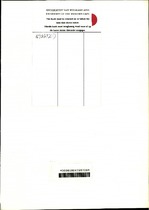The psychological effects of detention with particular reference to the South African political detainee
Abstract
The intention of this dissertation is to clarify the psychological processes and effects which operate in the political detention situation, and to outline effective treatment and coping strategies. An overview of research literature and theory is provided, and the importance of viewing detention within a broad 'socio-political context is emphasised. In the analysis of the detention situation a number of variables likely to be operative are considered. Solitary confinement, torture, interrogation, reactions to severe stress situation s, and uncertainty,
unpredictability and uncontrollability are given separate discussion, interaction situation. prior to an attempt to consider the of these variable s in the detention This projected picture is compared with case material gathered in the area. It is noted that political detention is not a uniform experience with a uniform set of effects. Rather, the effects are seen to be dependent on the particular differences in re-ponse. Nevertheless, political detention is shown to be commonly both objectively and subjectively severely stressful, with a strong likelihood of the detainee developing debilitating psychological sequelae. post-traumatic stress disorder appears to be commonly implicated, and symptom s may persist for many years. Family and community members and organisations to which the detainee belongs suffer not only the effects of the loss of that person, but also the problems of effectively helping him or her to reintegrate. It is shown that detainees have commonly drawn on a number of resources or strategies to counteract the potentially debilitating effects of prior preparation of detention. The for the detention experience to facilitate an accurate appraisal of the situation and better coping is emphasized. Useful strategies that may be learned or fostered are outlined. A multidisciplinary approach to treatment that acknowledges all of the difficulties and needs particular to any specific ex-detainee, and that draws on as broad a recommended. It is shown range of available supports Physiotherapy, psychotherapy, and family involvement are as possible, is medication where stressed. Necessary that much may be learned from Canadian and European units that rehabilitate victims of torture - mainly from South American countries; but that strategies need to be adapted to South African conditions.

